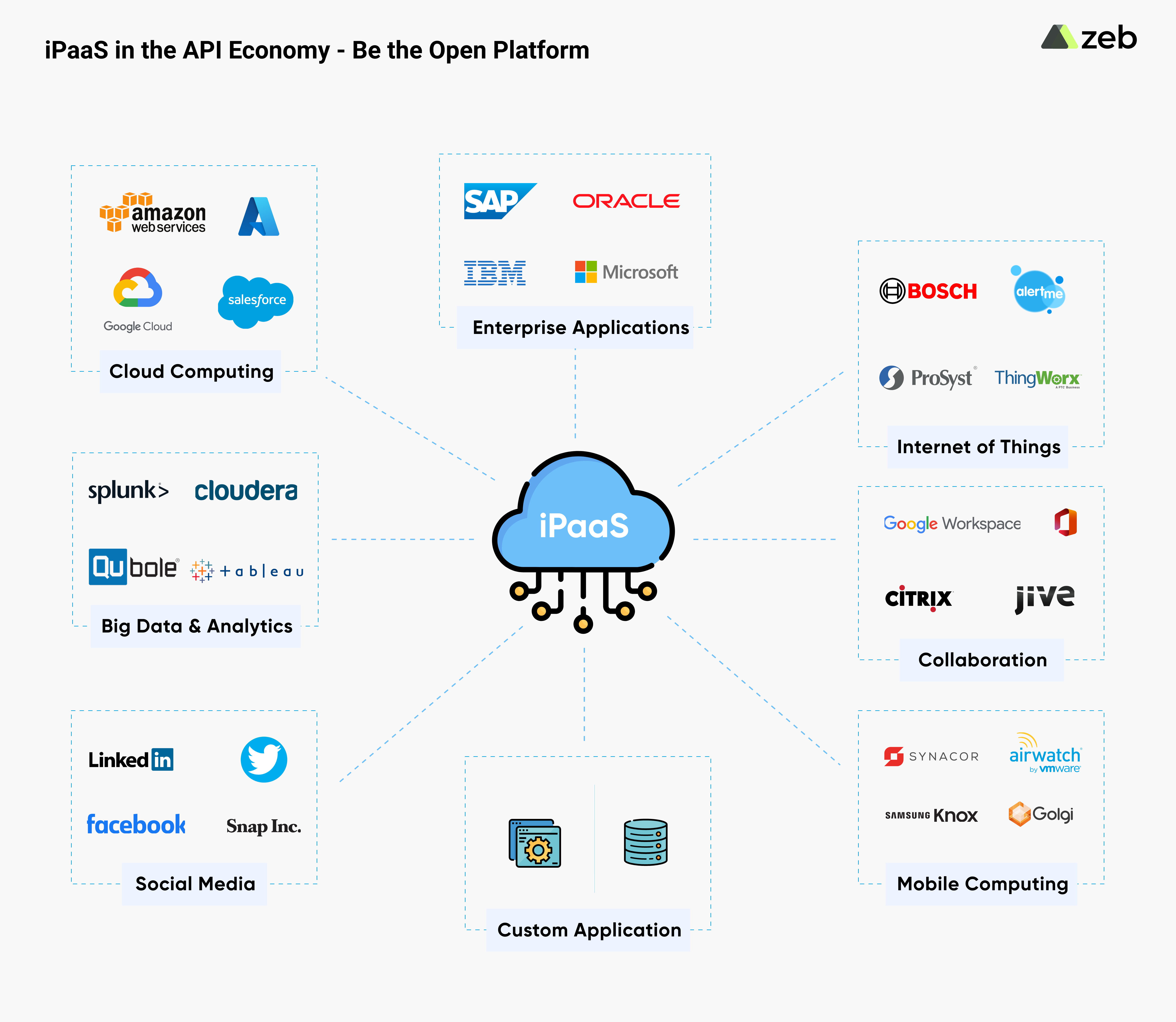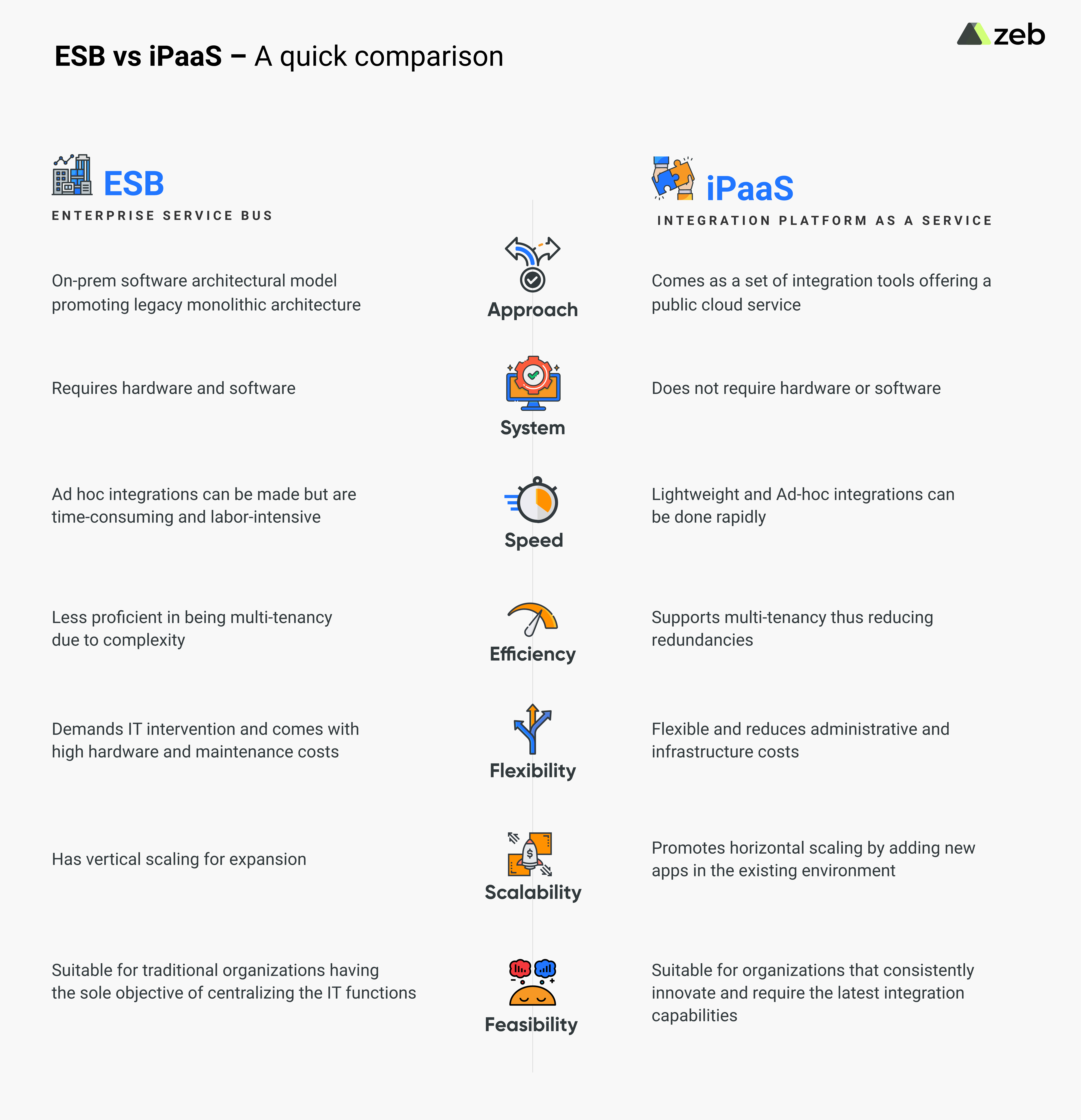According to Gartner, the worldwide public cloud service market will grow from $182.4B to $331.2B in 2022.
That’s huge growth
With the exponential growth in the blooming IT terrain, how do you connect the systems, applications, data, and devices for a collaborative approach?
Enterprises today are facing a huge challenge in integrating their systems and applications. As the traditional ESB integrations do not fulfill the mounting demands of the current market trends, organizations are flocking toward iPaaS and amplifying their digital transformation journeys.
However, if you are still using a legacy system for your business or enterprise, now is the best time to move from ESB to leading iPaaS platforms.
What is ESB?
When point-to-point integration did not work for enterprises, ESB helped in connecting the applications and the systems in the organization. Fundamentally, Enterprise Service Bus- ESB is a communication bus between applications. It helps in exchanging messages between multiple endpoints through this bus.
Continue Reading
Imagine a switchboard with multiple switches that help to connect with various endpoints. Just like that, these ESBs reroute messages from different endpoints and enable communication between applications or systems. The system has a decoupled nature and works independently in the ESB. However, with the increasing applications and integration demands by businesses of all sizes, it was tough to manage and became inadequate for a host of reasons.
iPaaS emerged and quickly gained the spotlight as the top integration solution in the market.
What is iPaaS?
When ESB performed the role of a communication center for the on-prem applications, iPaaS became a platform that connected on-prem and cloud apps.

Integration Platform as a Service or iPaaS is a cloud integration solution that helps organizations grow horizontally and comes with a myriad of features. It helps organizations accomplish their goals by connecting different applications and obtaining a single cohesive view.
ESB vs iPaaS – A quick comparison

The table above throws enough light on what iPaaS can do and ESB cannot do for your business to drive growth. We now know that iPaaS wins the battle and has a supreme edge over ESB and other legacy integration approaches.
Why should organizations choose iPaaS?
Smart choices for businesses are inevitable now to drive growth and iPaaS can get you there easily with its multi-tenancy feature. With this multi-tenant feature, multiple users can access the software simultaneously and they are made with low-code no-code making it easy for all users. It also slashes the overall cost and brings down the expenses to a bare minimum, making it the go-to option for integration.
Warning – Despite the pitfalls, many organizations fail to understand the impacts and are still clinging on to the legacy ESB for their integration solutions.
“As per our integration practice head, these organizations will very soon encounter numerous technical and infrastructural troubles if they refuse to look beyond the traditional ESB and fail to embrace the competitive integration solution – iPaaS.”
If you want your products or platforms to integrate with cloud-based applications, mobile apps, and IoT devices seamlessly, then iPaaS is what you need.
You can explore more benefits of the iPaaS platform here
Wrapping up
The popularity and consumption of modular apps and SaaS applications are rising exponentially with each passing day. With numerous touchpoints, connecting the system or the applications becomes a huge challenge. Enterprise Service Bus (ESB) is now becoming obsolete as iPaaS steps in to fill all the gaps left behind by ESB. iPaaS not only replaces ESB entirely but also renders ESB a thing of the past sooner than expected.
zeb’s integration experts can make the migration from ESB to iPaaS journey a seamless one. With our meticulously planned migration roadmap, we will help you accelerate your digital transformation journey without any hiccups.